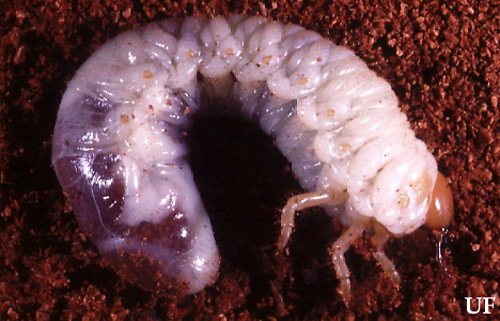A common question about insects when cold temperatures arrive is whether or not the cold will kill many pests. Although temperatures will occasionally drop below freezing in north Florida, it is normally not cold enough to significantly impact insect populations for the upcoming year.

Even when we do receive a significant amount of cold weather, insects have many methods to survive weather changes. Some insects survive by moving to micro-habitats that are more resistant to temperature fluctuations. Beetle larvae may move deep in the soil or into logs and trees for protection. The grubs can continue feeding on decomposing material throughout winter months. Beneficial insects such as dragonflies and damselflies stay protected in their nymph forms in the mud of ponds and lakes.
One of the most famous insect survival strategies is migration. We are all familiar with the late summer and fall flights of the monarch butterfly to warmer regions of Mexico and southern California. Those butterflies and moths that do not migrate have their own survival techniques. They will overwinter in protective pupal cases to emerge as adults in the spring. Moth cocoons are spun of silk and may be composed of multiple layers, making them a good protection for the transforming insect.
Insects are adapted for survival and can live through far colder winters than we experience. Even though our cold weather will not drastically change insect populations, periods of cold will at least slow down their activity enough for us to enjoy a break from many pest worries.
 0
0
